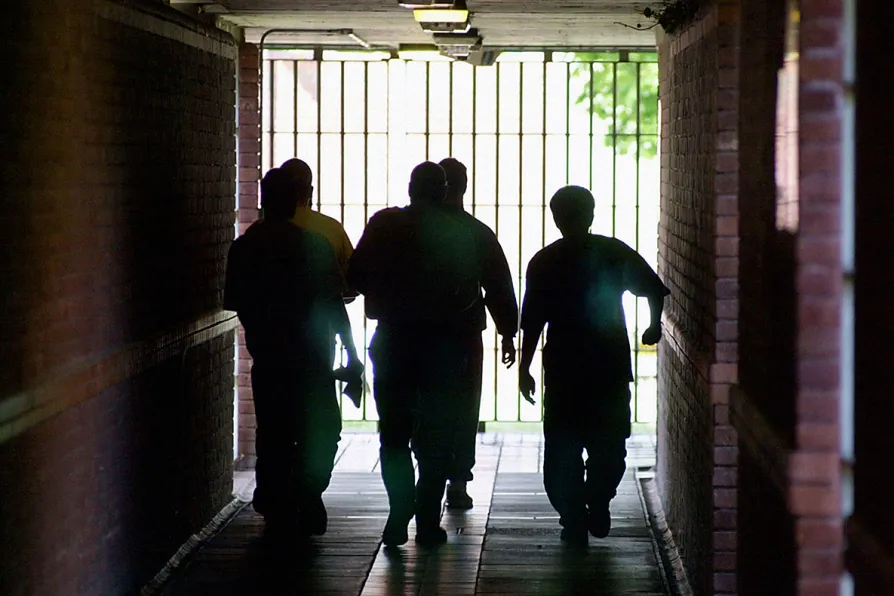
 A Prison Officer accompanies inmates along a corridor at HMP Feltham B, Middlesex, Young Offenders Institute
A Prison Officer accompanies inmates along a corridor at HMP Feltham B, Middlesex, Young Offenders Institute
A NEW prison inspectorate report found today that the youth custody service has failed to create environments in which children can form positive relationships with staff.
When inspectors visited three young offender institutions (YOIs) — Parc, Werrington and Wetherby — they found that children were often locked up for long periods, largely ate alone in cells and had few opportunities to talk privately to staff, who in turn were frequently moved to different units and denied the support they needed, such as regular supervision from managers.
The framework for integrated care to support children was deemed poorly implemented, with the report warning that many staff were not able, or had little time, to access information that would help them understand the needs of each child.
Howard League for Penal Reform chief executive Andrea Coomber KC said: “The youth custody service’s failure to properly implement its own framework for integrated care is of great concern, and it underlines why the government’s plan to roll out [incapacitating] Pava spray into prisons in England holding children is a terrible step in the wrong direction.”
“Children in prison are already lacking care and support from adults they trust — why on earth are ministers about to permit the use of this weapon on children?” she said.
In April, Justice Secretary Shabana Mahmood authorised the use of the spray, a synthetic type of pepper spray, on children as young as 15.
National chair of the Prison Officers Association Mark Fairhurst said: “Those who oppose the use of Pava to quell violence are advocating staff being viciously assaulted and young people being attacked by violent mobs of rival gangs.
“Maybe these people should don a uniform and show us how to control violent young prisoners intent on inflicting life-changing injuries on staff. We are not dealing with naughty schoolchildren.”
A Ministry of Justice spokesperson said: “Our priority remains supporting the long-term rehabilitation of children to cut crime, which is why we’re improving the support available to those in the youth estate and strengthening their relationships with staff.
“Custody remains a last resort for children, used only in the most serious cases.”










